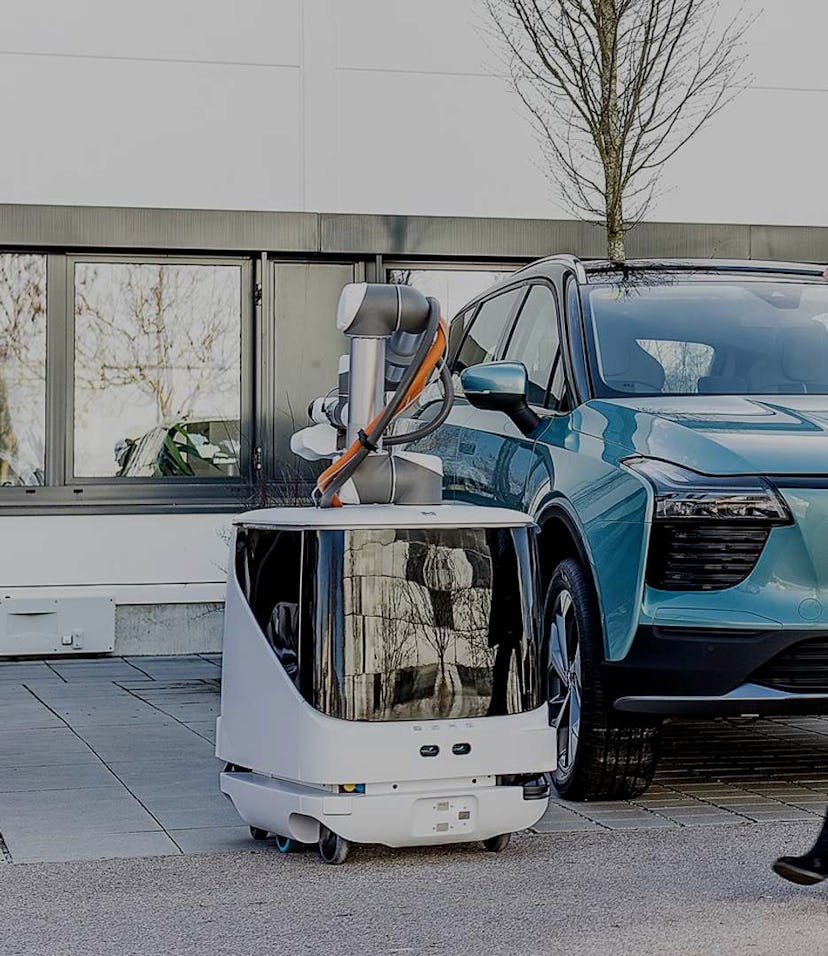Tech
This 'touchless' electric car charging robot is the COVID-19 luxury we need
Chinese EV maker Aiways wants you to keep your hands clean and your car powered up.

In the age of coronavirus, people have become extremely aware of the many things they touch every day and are going to great lengths to minimize such contact. But, filling up your car is one of those hard things to avoid — unless you're in the New Jersey or Oregon where, incredibly, attendants still fill up cars. For the rest of the country, you've got to do it yourself. And if you've got an electric vehicle (EV), you're definitely going to have to touch a public charging station unless you only top up at home.
Fortunately, Chinese electric automaker Aiways has created a concept for an EV charger you would never have to touch. CARL, as it's called, is a little autonomous robot that is summoned via an app and rolls over to your car to charge it. Which could be great... if it turns out to be real.
CARL seems like vaporware — Aiways, the auto company behind CARL, is a minor player in the EV space that only started production of its first electric car in late 2019. And we have questions: How many kilowatt-hours of energy does CARL hold before it needs to charge itself? How does the robot open the charging cover on a car? And can CARL charge any EV or only Aiways vehicles? We'd expect the latter, as most EVs use the same connector now, but the video isn't especially enlightening.
Also, frankly, CARL might be a little over-engineered. We imagine this robot would be very expensive to produce, and all it really does is stick a charging cable into an EV's charging port. That hasn't stopped Volkswagen making it's own charging robot, though. So Aiways isn't alone in thinking the idea has merit. We're inclined to think dedicated bays with fixed chargers are going to prove more cost-effective. And as EVs become more common, charging stations will, too.
Whether it comes to fruition or not, CARL is a cool concept that demos something only possible in our rapidly arriving EV future. This wouldn't fly with highly flammable gasoline. Gas stations are placed away from residential buildings for a reason, with many safety measures in place to prevent any accidents. The lithium-ion batteries inside electric vehicles present a far lower risk of fire or explosions so it'd be much safer to have these roaming around than a liquid bomb on wheels.
The bigger trend — While CARL may never see the light of day, the idea that we're going to rethink public interaction in the post-COVID world is likely here to stay. Face masks were already quite common in Asia before this pandemic and now Americans are getting accustomed to wearing them. At the very least, minimizing human-to-human contact in public is becoming a show of respect: You wear a mask at the grocery store not for yourself, but to alleviate concerns of the critical worker bagging your food and the other shoppers. Maybe you'll use a charging robot for your car one day for similarly civic-minded reasons.
This article was originally published on